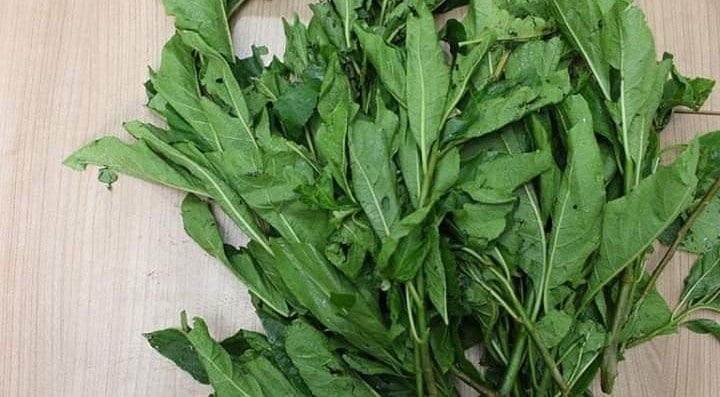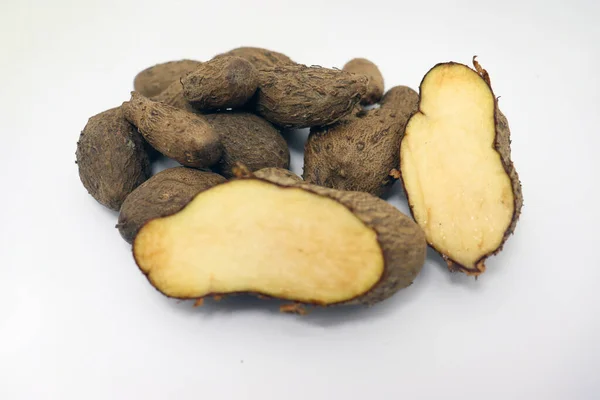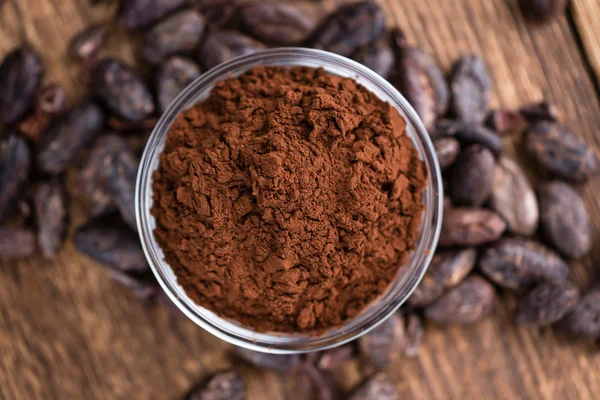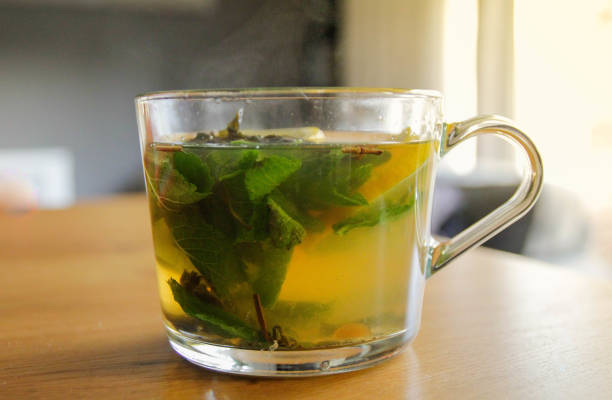Nigeria is known for its rich and diverse cuisine, with an array of flavorful and aromatic dishes that many enjoy. While sweet, spicy, and salty flavors are often the most popular, some healthy bitter foods are also enjoyed in Nigeria.
However, bitter foods are not particularly enjoyed by many people because their strong flavors and taste can be unappealing to them, especially picky eaters.
Nevertheless, some bitter foods are incredibly nutritious and contain a wide variety of plant-based chemicals that have significant health benefits.
These bitter foods not only add depth and complexity to dishes but also provide numerous health benefits.
In today’s article, we will be looking at some of the healthy bitter foods in Nigeria.
1. Bitter Leaf

Bitter leaf, for example, is a popular ingredient in Nigeria and is widely used to make soups and stews.
It is the leaf gotten from the bitter leaf plant, scientifically known as Vernonia amygdalina, a medicinal herb that grows in tropical Africa, and it is tagged “bitter” due to its bitter taste.
Bitter leaves are used to prepare bitter leaf soup, also known as Ofe Onugbu. The leaves are washed thoroughly to get rid of the bitter taste when preparing the soup.
It is known for its high vitamin and mineral content, as well as its ability to aid in digestion and detoxification. It is also believed to help regulate blood sugar levels, making it a great choice for those with diabetes.
Bitter leaves have also been said to possess antimalarial, antiinflammatory, and antibacterial properties.
2. Bitter Kola

Bitter kola, scientifically known as Garcinia Kola, is a “bitter” fruit commonly consumed in many West African countries, including Nigeria.
Different tribes have different names for bitter kola in Nigeria; “Orogbo” in Yoruba, “Miji-goro” in Hausa, and “Akiilu” in Igbo.
Bitter kola is typically eaten during ceremonial occasions; however, African traditional healers use bitter kola to treat ailments.
They are bitter and have a strong smell.
It s known for its antibacterial properties and is often used to treat digestive issues, as well as to boost the immune system. It is also high in antioxidants, which help to protect the body from damage caused by free radicals.
A 2008 study found that bitter kola possessed significant analgesic/anti-inflammatory effects in knee osteoarthritis patients.
3. Bitter Yam

Bitter yam, scientifically known as Dioscorea dumetorum, is a specie of yam that is native to Africa. It contains a fleshy, potato-like root that can be used for food or medicinal purposes.
Bitter yam is known as cluster yam, or three-leaved yam. In parts of West Africa, it is called èsúrú in Yoruba language, ji ònà in Igbo language, ánêm in Ibibio language.
Bitter yams found in the wild can be poisonous; hence, they must be soaked and boiled before eating. On the other hand, ‘bitter yams that farmers have carefully cultivated are poison-free due to selecting safer types.
The yams have a slightly bitter taste compared to regular yams.
Nonetheless, it is a nutritious food that is widely used in Nigeria. It is low in fat and high in fiber, making it a great choice for those who are looking to maintain a healthy weight. It is also rich in vitamins and minerals, including vitamin C, potassium, and iron.
According to studies, bitter yams have been said to have antioxidant and antidiabetic properties.
4. Pure Cocoa Powder

Pure cocoa powder, also known as organic cocoa powder or unsweetened cocoa powder, is a healthy food ingredient made from cocoa beans. When cocoa butter is processed, the chunks of roasted cocoa bean bits left behind are ground into cocoa powder.
Because it is unsweetened, it tastes extremely bitter. However, it is incredibly healthy.
Cocoa powder is a source of antioxidants and contains various beneficial compounds, such as flavonoids and polyphenols, which have been shown to have numerous health benefits.
It has also been linked to improved cardiovascular health, as it can help to widen blood vessels and reduce inflammation, protecting your heart.
It is also an amazing source of several trace minerals, including copper, manganese, magnesium, and iron.
5. Green Tea

Green tea is a type of tea that is made from Camellia sinensis leaves. Although it is widely consumed in Nigeria, it should be among the healthy bitter foods in Nigeria.
Green tea has a naturally bitter taste because it contains catechin and polyphenol.
The bitterness of green tea can vary depending on the type of tea, growing conditions, and processing methods, but it is generally considered to be one of the signature flavors of green tea.
Be that as it may, it is considered to be one of the healthiest teas due to its high content of antioxidants and beneficial compounds, such as catechins and epicatechins.
YOU SHOULD ALSO READ THIS:
- 7 Common Healthy Legumes In Nigeria
- Nigerian Foods An Ulcer Patient Should Avoid
- 7 Healthy Fermented Foods In Nigeria
- 10 Nutritious Calorie-Dense Foods In Nigeria
- 10 Nutritious Igbo Foods In Nigeria
- 10 Nutritious Yoruba Foods in Nigeria
- 10 Nutritious Hausa Foods in Nigeria
- 10 Healthy Vegan Foods In Nigeria
- 10 Acidic Foods In Nigeria
- 15 Healthy Nigeria Foods That Reduce Belly Fat
- 8 Nutritious Nigerian Foods For Cold Weather
- 7 Healthiest Cooking Oils in Nigeria


